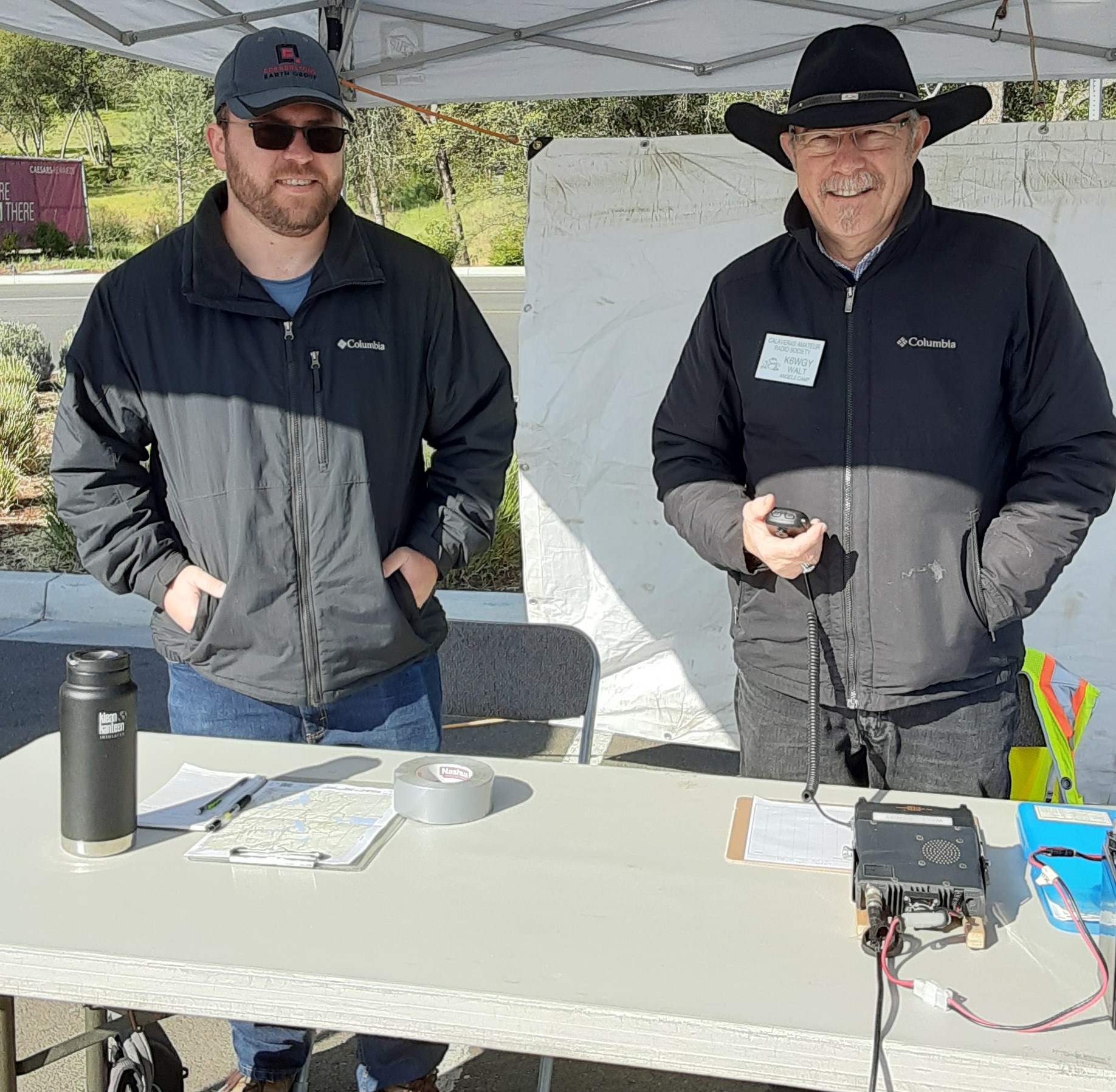For those of you that did not see the article on “Radio Buffs Combine
Service with Fun” in the Union Democrat on March 1st (Community Section),
I am providing a copy of the text from this article written by Lenore
Rutherford in this email as an attachment.
The article includes interviews with CARS and TCARES…
Enjoy…!
73
John
KI6ART
CARS, Inc.
PIO
Radio Buffs Combine Service With Fun (w/pic by maggie of tuolumne county guy, and a submitted pic of the calaveras county tower)
By LENORE RUTHERFORD
The Union Democrat
Like many community organizations, amateur radio clubs have dual purposes — social and serious.
They link people around the world with an interest in radio communications for fun and to share information. At the same time, they are an integral part of a worldwide emergency team, providing back-up communications for county, state and federal agencies during severe emergencies.
“Our slogan is ‘When everything else fails, amateur radio is there,’” said John Davenport, public information officer for the Calaveras Amateur Radio Society, based in Angels Camp.
That group, which was founded as a small organization with a few dedicated enthusiasts about 50 years ago, has grown to a membership of about 100 people who maintain a national repeater called N5FRG on Fowler’s Peak in Calaveras County. A repeater relays radio signals.
The Calaveras club meets for breakfast at 9 a.m. the first Saturday of each month at the Murphys Hotel, and visitors are welcome. The club’s website is www.calaverasARS.org
Club members participate in several events throughout the year and are always available in emergencies to help relay information.
The Tuolumne County Amateur Radio Emergency Service also welcomes visitors. The club meets for breakfast at 9:30 a.m. the third Saturday of each month at the Pine Tree Restaurant on Hess Avenue off Mono Way. Its website is www.lodelink.com/tcares.
T.C.A.R.E.S. maintains five repeaters, because of the county’s rugged terrain, to enable emergency workers to communicate with each other in the backcountry, as well as to relay messages around the world.
“We have a lot of fun,” Phillip Fish, of Twain Harte, said, “but amateur radio operators have always had a serious purpose and still do.”
He said the practice of training ham radio operators began during World War I and grew during World War II, when there was a shortage of radio operators. The Federal Communications Commission made it possible for civilians to hone their skills and be licensed so there would always be a ready supply of operators available for national defense purposes.
“We still go out on field operations,” Fish said, “where we take radio equipment out into the countryside, operate without any power from PG&E and talk to people all around the world using homemade antennae constructed over a weekend.”
Fish said being an amateur radio operator is a lot of fun. “It’s not a hobby where you find many grouches,” he said. “We are definitely people who like people.” He said he particularly likes being able to chat with people from different cultures and ethnic backgrounds. “But our primary function is to be there for emergencies, whether they are local or not.”
He said they have helped relay communication during many disasters, including Hurricane Katrina and the disasters in Haiti. And it helps locally when the radio operators can communicate with each other during snowstorms. “Last week, my wife was caught in Groveland during that big snowstorm, and we were able to help her avoid the worst areas and bypass the
areas that were jammed up with traffic,” he said.
Davenport said it’s a privilege to be a licensed amateur radio operator, and that privilege can be taken away for improper conduct on the air. He said one man recently had to pay a $16,000 fine for using the wrong frequency.
“There is a definite protocol, based mainly on courtesy,” he said. “If somebody starts using cuss words, a bunch of other amateurs will jump on them and tell them to knock it off. Eventually, someone will report it to the FCC.”
He said there are three levels of licensing, and each one requires passing a test. There are members of all ages, some as young as 10 years old. “They just have to be able to pass the test and understand all of the requirements,” he said. “There is even a Boy Scouts of America amateur radio badge.”
Every licensed amateur radio operator is eligible to apply for membership in the Amateur Radio Emergency Service, which provides communications to public agencies when disaster strikes. Training may be required to fully participate in ARES.
Founded in 1952, the Radio Amateur Civil Emergency Service is another service provided by volunteer amateur radio operators during times of extraordinary need. The Federal Emergency Management Agency provides planning guidance and technical assistance, and the Federal Communications Commission regulates it.
Contact one of the local clubs for specific information.
Contact Lenore Rutherford at lrutherford@uniondemocrat.com or 588-4585.


